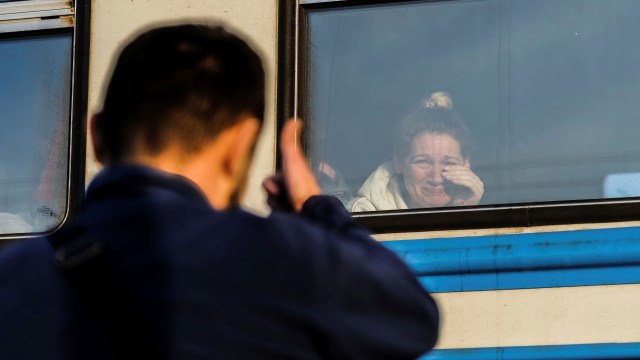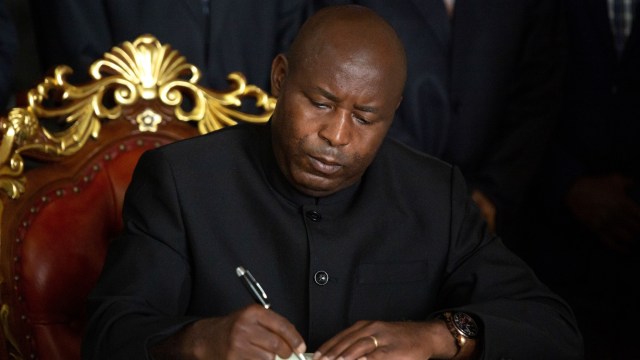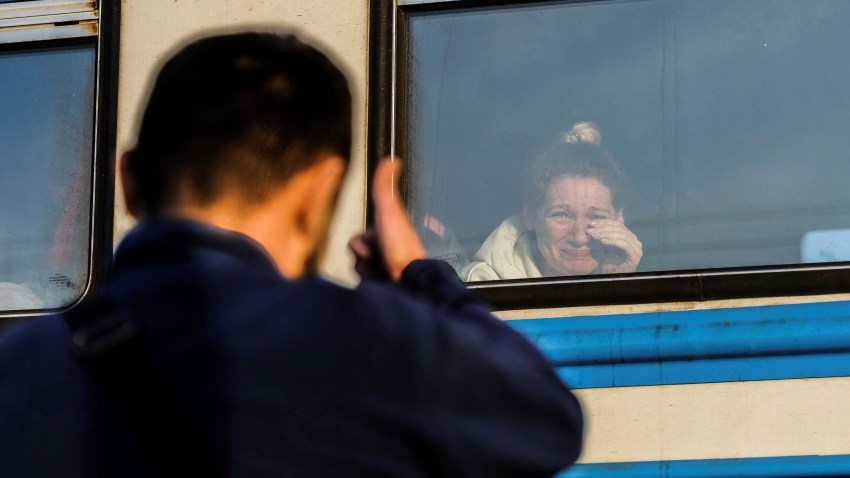Hello everyone. Today at WPR, we’re covering how Ukraine’s male-only travel ban affects women and the human rights landscape in Burundi.
But first, here’s our take on today’s stop story.
Niger crisis: France is evacuating French and other European nationals from Niger amid a deepening crisis in the country due to last week’s coup, which has now received backing from three other West African countries ruled by military juntas. (AP)
Our Take: The sixth coup in West Africa since 2020 has made more visible than ever the ways in which the Western approach to the region—led by France and the U.S.—had been rotting from the inside out for years.
Amid the deepening crisis in the Sahel, the West continued to target jihadist armed groups, ignoring the many other root causes of violence and insecurity. These included farmer-herder tensions exacerbated by climate change, ethno-sectarian conflict and predatory behavior by the state and its representatives. Jihadists were savvier about leveraging these fault lines for their own advantage than the West was in seeking to address them.
Before the unraveling of that approach over the past three years, there was little incentive for France and the U.S. to address those shortcomings. Now, they are impossible to ignore.
The emerging status quo—which leaves Mali, Burkina Faso and Niger in the hands of military juntas that don’t have the operational capacity to defeat the jihadists—fails to offer a satisfactory solution to the crisis. Barring some unforeseen development, the situation is only likely to deteriorate. However, the events of the past three years, culminating in the coup in Niger, may yet have a salutary effect, if they lead France and the U.S. to stop pursuing an approach that had clearly failed and reassess their assumptions about the region that led to that failed approach in the first place.


Ukraine’s Male-Only Travel Ban Is Also a Women’s Issue
Ukraine’s travel restrictions trapping most of the country’s male population inside the country’s borders have had dire impacts on Ukraine’s civilian population.
It’s easy to view the biggest victims of the travel ban as civilian men, but findings from a new report show it is actually Ukrainian women who are particularly keen to modify or completely lift it.
Columnist Charli Carpenter explains how the current policy harms women, albeit in different ways than men.
In Burundi, Human Rights Reforms Are No Longer a Priority
After five years of a declining human rights landscape in Burundi, President Evariste Ndayishimiye took office in 2020 and quickly reversed some of his predecessor’s repressive measures, raising hopes that he might deliver on his promised reform agenda.

Last month, though, Burundi’s delegation to the United Nations Human Rights Committee walked out of a meeting to review the country’s human rights landscape, renewing concerns about the credibility of the East African nation’s reforms. Chido Mutangadura breaks down the situation.

Question of the Day: Which Latin American leader was the first to emulate Nayib Bukele’s security policy in El Salvador by pursuing mass arrests and detentions of suspected criminals?
- President Rodrigo Chaves Robles of Costa Rica
- President Laurentino Cortizo of Panama
- President Alejandro Giammattei of Guatemala
- President Xiomara Castro of Honduras
Find the answer in the latest WPR Weekly Quiz, then read Tiziano Breda’s briefing on why emulating Bukele’s policy might not work elsewhere.

Myanmar’s ruling military granted a partial pardon to jailed former leader Aung San Suu Kyi on Tuesday, shaving six years off her 33-year jail term, though she remains under house arrest. The partial pardon comes as part of an amnesty of more than 7,000 prisoners in the country.
Given the atrocities Myanmar’s military junta has been and still is committing against civilians amid the country’s civil war, these pardons amount to a relatively weak attempt to whitewash its facade internationally.
As columnist Frida Ghitis wrote last month, the world is paying scant attention to Myanmar, even as the conflict escalates and the ruthlessness of Myanmar’s military has greatly intensified:
It’s Time the World’s Democracies Paid Attention to Myanmar’s Civil War
Myanmar’s civil war is raging on, and the world’s autocracies are paying close attention. Democracies should be, too. Read more.
In Senegal, opposition leader Ousmane Sonko remains in custody after being arrested Friday on charges of plotting an insurrection, criminal conspiracy and theft, among other crimes. Sonko, who was charged again Monday, also saw his political party dissolved for its alleged role in organizing protests in June.
Sonko had been considered by many to be the biggest threat to President Macky Sall’s coalition in next year’s presidential election. As Borso Tall wrote in April, many believe that democratic backsliding in Senegal, including the targeting of opposition figures like Sonko, has worsened under Sall.
Senegal’s Democratic Credentials Have Taken a Beating Under Macky Sall
President Macky Sall is considering a third-term bid, amid human rights concerns and Senegal’s polarized politics. Read more.
That’s all for today’s Daily Review. Coming up, we’re covering the Taliban’s links with al-Qaida and other terrorist groups in Afghanistan and current global trends in reproductive rights.
Have a great day,
Jakob Cansler
More From WPR
- James Bosworth on Latin America’s militarized security.
- Eduardo Arcos on Mexico’s recent economic success.
- Paul Poast on the prospect of a nuclear-armed Saudi Arabia.
- Anne Lauder & Hilary Matfess on the effect of private military companies on aid delivery.

